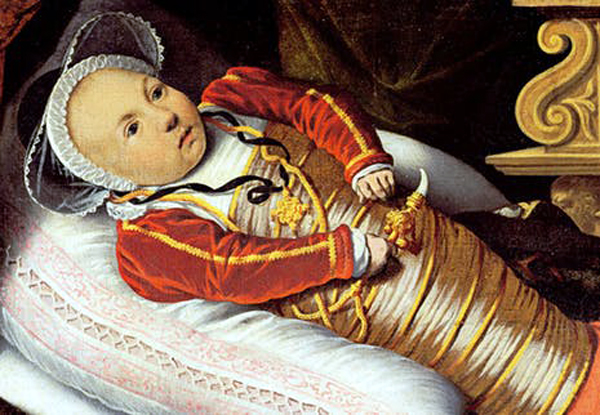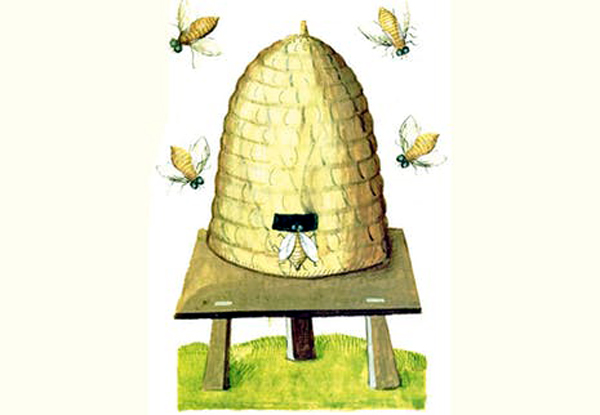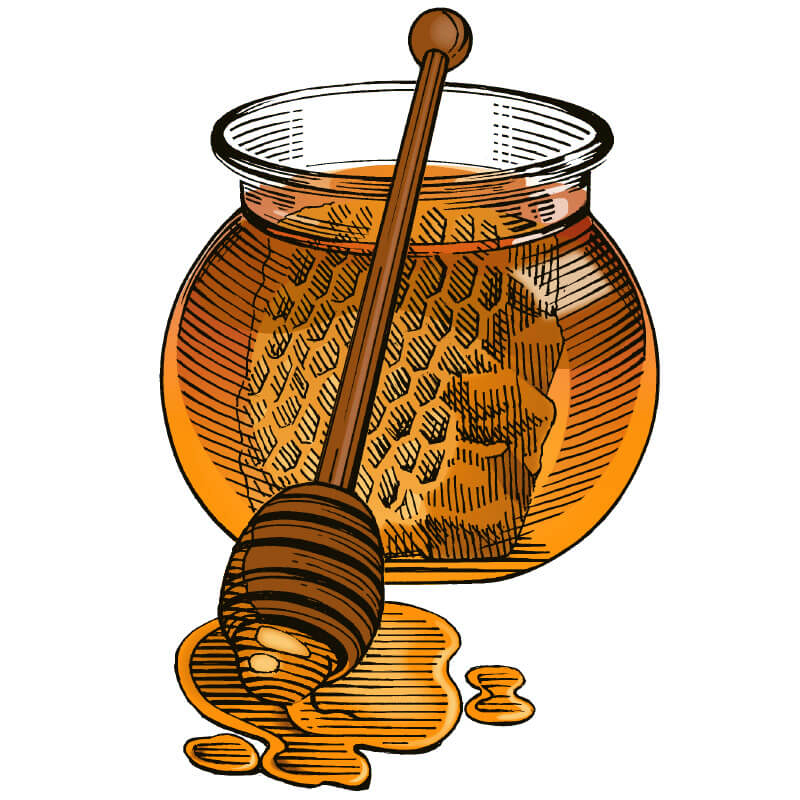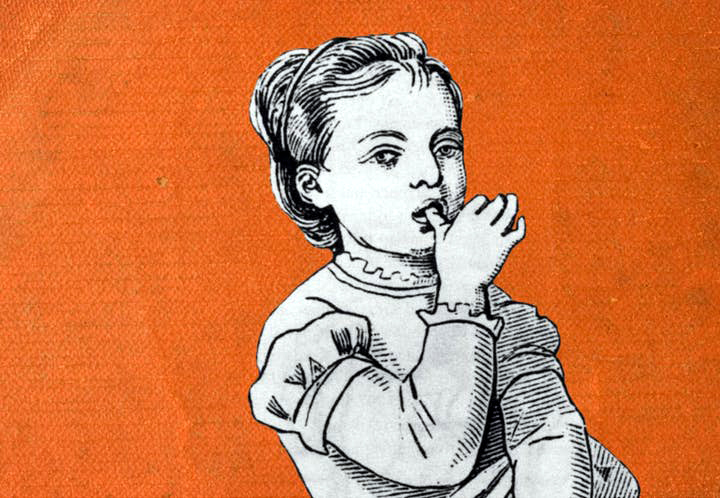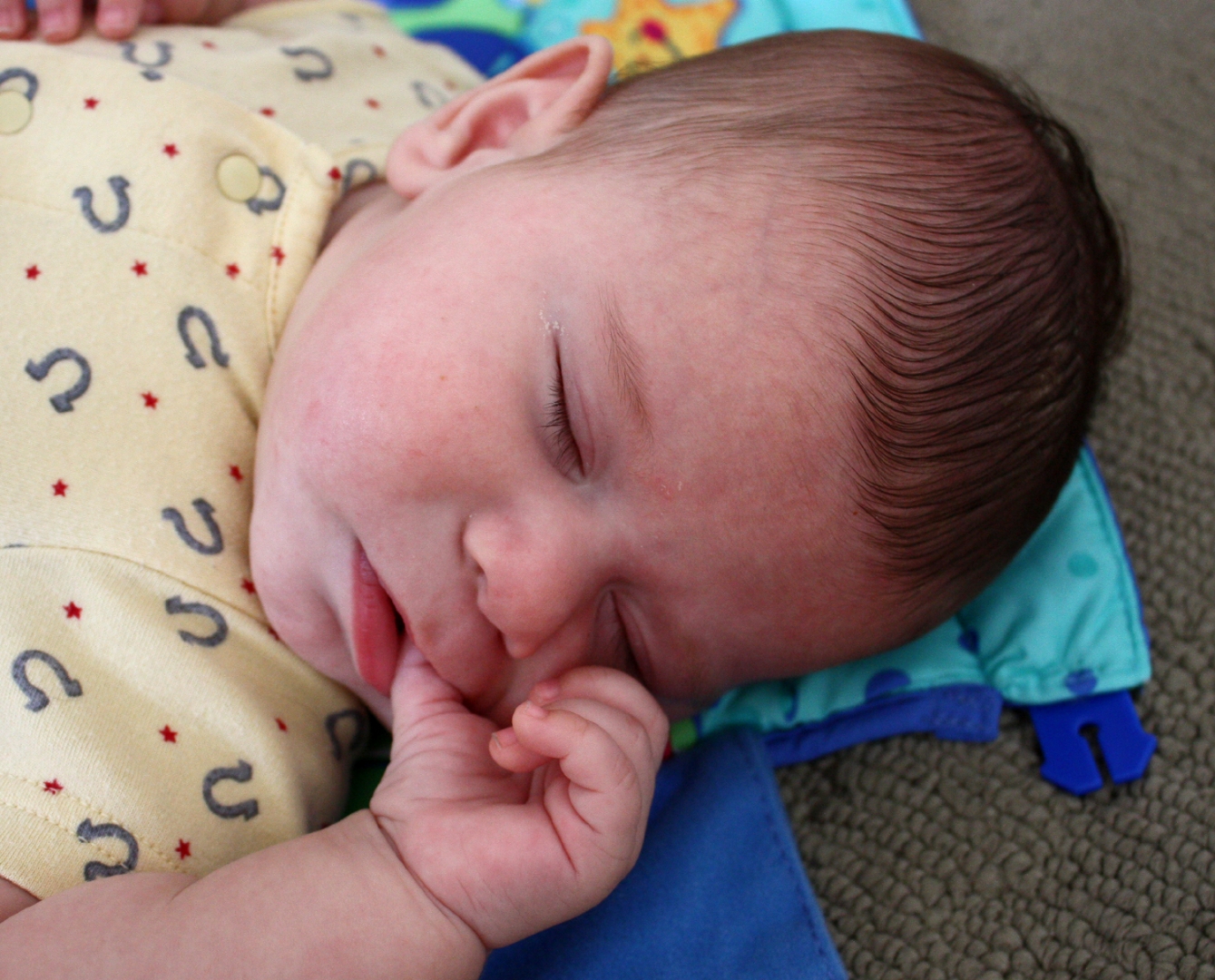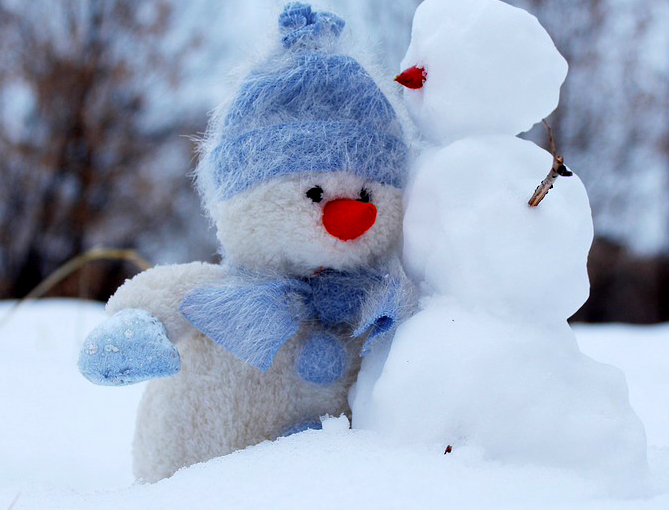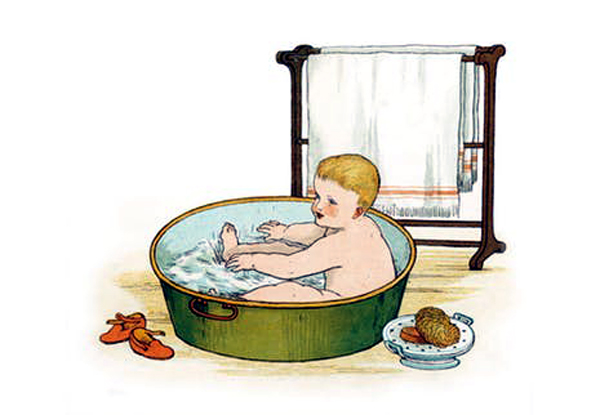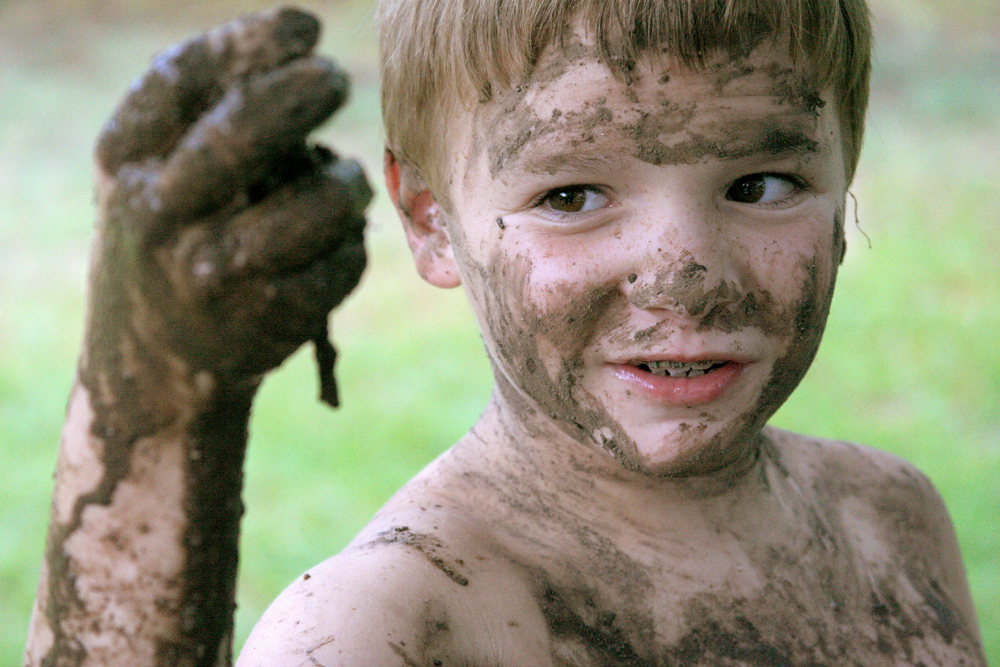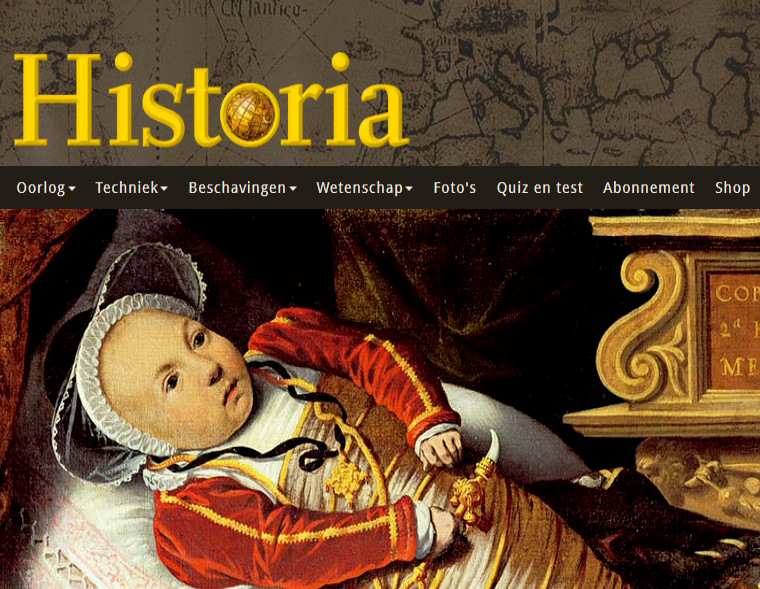Thumb sucking leads to moral decay, wet shoes are good for the immune system, and hygiene damages intelligence. The good old days offered countless pieces of advice for young parents, not all of which were equally effective.
Salt and honey on babies' gums
When teeth were slow to appear, honey was used. Some babies get teeth after just three months, while for others it takes a year.
But in the Middle Ages, there was a widespread misconception that a child's language skills were linked to the moment their first tooth appeared. If the milk teeth were slow to appear, parents became very concerned.
Fortunately, there was all kinds of advice available for concerned parents.
For example, they could rub salt and honey on the baby's gums.
And if that didn't work, there were always wolf teeth. According to medieval experts, a row of wolf teeth helped baby teeth on their way and ensured that they became as strong and white as a wolf's teeth.
♦ Finger in the mouth was harmful
Thumb sucking is natural behavior for babies, but in 1878, American physician Thomas Chandler spoke out strongly against it. “There is nothing that causes so much damage to the jaw and the position of the teeth,” he wrote in a medical journal.
The idea spread, and a year later, German pediatrician S. Lindner published a scientific study of 69 babies. He concluded that thumb sucking not only caused deformities, but was also a sexual act that led to masturbation—a very serious matter in the 19th century.
In 1925, psychologist James Mursell attributed addiction to tobacco and alcohol to thumb sucking, and until the mid-20th century, parents were advised to prevent thumb sucking at all costs.
For example, by tying the hands to the crib or smearing the child's thumb with a smelly substance.
There was also an aluminum baby glove in circulation, which was recommended in 1914 by the American pediatrician C.G. Kerley.
Research has since shown that thumb sucking has all kinds of positive qualities.
♦ Barefoot in the snow
In 1693, the English philosopher John Locke published his book Some Thoughts Concerning Education, which would continue to have an enormous influence on education for 100 years.
Locke warned parents not to dress their children too warmly in winter and advised them to wash their sons' feet in ice water every day.
Children should walk through the snow barefoot or wearing thin shoes. Because if they were exposed to the cold as children, they would be less likely to catch colds as adults.
John Locke
♦ Dirty child became smart adult
Before the 18th century, doctors and parents attached little importance to personal hygiene.
It was even a common superstition that dirt offered protection against illness and misfortune. In the Haut-Vivarais region of France, it was widely believed that children whose heads were washed became mentally retarded.
A layer of dirt on a baby's fontanelle also protected against blows or falls.
In this area, it was not customary to cut the nails and hair of children less than a year and a day old. This was believed to impair speech and make children unreliable.
Many mothers also did not wash wet diapers, because they believed that urine had medicinal properties. They therefore only dried the diapers.
♦ Hygiene was long considered harmful.
Source: HISTORIA
(12-12-2011)

